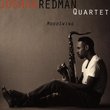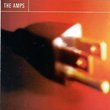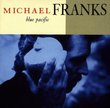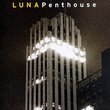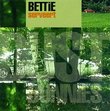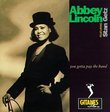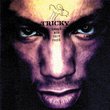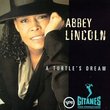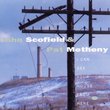| All Artists: Dave Douglas Title: Freak in Members Wishing: 0 Total Copies: 0 Label: RCA Release Date: 2/18/2003 Genres: Dance & Electronic, International Music, Jazz, Special Interest, New Age, Pop, R&B Styles: Electronica, Avant Garde & Free Jazz, Jazz Fusion, Modern Postbebop, Bebop, Funk Number of Discs: 1 SwapaCD Credits: 1 UPC: 090266400829 |
Search - Dave Douglas :: Freak in
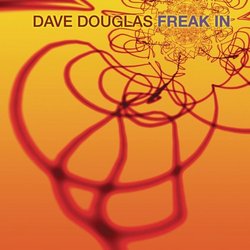 | Dave Douglas Freak in Genres: Dance & Electronic, International Music, Jazz, Special Interest, New Age, Pop, R&B
Think of Miles Davis's In a Silent Way sessions with an updated "jazztronic" treatment, and you'll get the vibe of this CD by the mercurial, Grammy-nominated trumpeter Dave Douglas. He's backed by a 21st-century combo feat... more » |
Larger Image |
CD DetailsSynopsis
Amazon.com Think of Miles Davis's In a Silent Way sessions with an updated "jazztronic" treatment, and you'll get the vibe of this CD by the mercurial, Grammy-nominated trumpeter Dave Douglas. He's backed by a 21st-century combo featuring saxophonist-clarinet Chris Speed, pianist Craig Taborn, and guitarists Marc Ribot and Romero Lubambo, the turnabalist Jamie Saft, and tenor saxophonist Seamus Blake. They embark on a techno-tantric--yet textured--trip through electronica and blues, steered by Douglas's horn lines. The title track is a zesty bhangra-bopped number sprinkled with remixer Karsh Kale's tablas, while "Eastern Parkway" swings with an industrial New Orleans sound. With taste and wit, Douglas manages to make even nonjazz sounds seem jazzy, something Miles Davis also did very well. --Eugene Holley Jr. Similarly Requested CDs
|
CD ReviewsDouglas trumps everybody Jan P. Dennis | Monument, CO USA | 02/21/2003 (5 out of 5 stars) "The prodigal, unbridled talents of Dave Douglas come into fullest flower on this absolutely stunning disc. Gone, thankfully, are the puerile politics (well, perhaps not gone, but at least not trumpeted, so to speak, as on Witness). Gone is the sterile academic playing. Gone is the bloated experimentation. Here, at last, after a decade of wild vascillattion between genius and tomfoolery, Dave Douglas emerges from the fray as the reigning heavyweight jazz champ.The results are everywhere to be heard on this unspeakably brilliant disc. From the ominous thudding industrial noise of "Eastern Parkway" to the gorgeous pastoral rhapsody of "November," featuring the elegiac sax/trumpet duet of Douglas and Chris Speed, the latter playing his tenor is such a fashion as to sound remarkably like an open trumpet, undergirt by a bubbling, chunky-funky slow rhythmic burn and overlaid with tasty electronics and guitar stylings. From the mesmeric eastern-flavored "Porto Alegre," once again showcasing stunning trumpet/sax passages, this time featuring Seamus Blake, to the hypnotic groove of "Maya," perhaps the best example of integrating electronics with earthy beat-elements (indeed, Karsh Kale's neo-Indian tabla playing gives the entire proceedings a firmly grounded foundation out of which exotic flights of fancy seem naturally to (a)rise), Freak In is one of the most stunning, diverse musical statements ever recorded. Special mention must be made of "Traveler There Is No Road." Clocking in at almost eight minutes, it's the longest piece on the disc, and positioned last (except for the mysterioso bonus track, "The Mystic Lamb," that fades in after nearly two minutes of silence) naturally sums up and puts a cap on this most ambitious disc, displaying effectively the full range of this remarkable unit's virtuosity. "The Mystic Lamb" is uncredited, I take it, because it's the logical next step for Douglas, with its eerie combination of electronics and stately Church (or Temple) motifs perhaps pointing the way forward toward an even more adventurous music.A note about the leader's playing: Douglas has been criticized for being technically brilliant but lacking soul. I've felt that way myself in relation to some of his past efforts, especially Leap of Faith and (ironically, given its title) Soul on Soul. Yet, it's hard to fault him, especially if one thinks of these earlier outings as testing grounds for what gloriously emerges on this disc. Here, without sacrificing one whit of technique, he seems to be more concerned to create beguiling soundscapes than flaunt his chops. No, he'll never be as irreverent and playful as, say, Lester Bowie, but neither will he be mistaken for Wynton Marsallis.Much has been made of the burgeoning "electo-acoustic" movement in jazz. Indeed, a recent jazz magazine devoted its cover article to "jazztronica," with Douglas prominently featured along with Brad Mehldau, Matthew Shipp, Springheel Jack, and others. A big issue here is the use of real-time vs. studio-generated electronics. As Douglas points out in that article, that's not the point. What he calls the flow of the music, is. And with Freak In he's achieved not only what to these ears is some kind of ur-statement of highest quality yet listener-friendly jazztronica, but a musical masterpiece in any genre." Rooting a hip trend in old-fashioned melodicism Matthew Holford | Brooklyn, NY United States | 06/20/2003 (4 out of 5 stars) "The standout musicians in the downtown NYC jazz/improvisational scene -- Uri Caine, John Zorn, Marc Ribot, Dave Douglas, John Medeski, Susie Ibarra, and so on -- do the delicate experimentalist's dance on the borderline between a catholic interest and a tiring dilettantism. The best of them string the essentials of improvisational musicianship, a strong individual voice and a gift for melody, through their wide-ranging work.Dave Douglas is an unimpeachable improviser. His sound is instantly recognizable and inherently pleasing, his gift for melody constant and funny. He's got a fast...sense of humor and a fairly massive brain. His statements are both consistent and consistently surprising, and he has a talent for banding together with similarly talented folks.Freak In participates in a few of the hot current trends in eclectic improvisation: 70s Miles revivalism, drum and bass, random electronica. What's so new about the compositional styles? Hey, not much. But the Stanley Crouch fan(s) in this crowd can bite me. Does Stanley Crouch criticize Wynton's 85th trad recording? No. Why? Well, probably because Wynton's at the center of the jazz trad establishment, for one, but more importantly, because for Crouch certain genres are *okay* to embrace whole-heartedly, whereas in others you'd really better be doing something new and outdoing Miles, because the genre as it exists now does not pass his muster.If you're really arguing about which traditions are okay to bask in, and which aren't, then you're not saying very much of interest. Traditions, genres, are great because of who helps to define and expand them. Dave's is a voice that I happily welcome into whatever genres he takes a shine to, because (for now, at least) his energy, melodicism, and wit can anchor whatever experiments he puts to tape." Celebratory outing from a Jazz heavyweight Donnie | Boston | 02/24/2003 (5 out of 5 stars) "There's a reason Dave Douglas is widely recognized as one of the premier jazz artists of this era: He consistently produces outstanding material that is jazz-to-the-core, while refusing to limit himself to what purists believe jazz "can or can't be". There's no doubt that "Freak In" is jazz, but it's so much more. It's a collection of sounds and ideas whose end result is a musical celebration. Think Mingus' "Black Saint and the Sinner Lady". Think MMW's "Combustication". Now you've got it, and at the center of it all is Douglas' lyrical trumpet. "Freak In" confirms my belief that jazz is in good hands and is as strong as ever."
|

 Track Listings (12) - Disc #1
Track Listings (12) - Disc #1